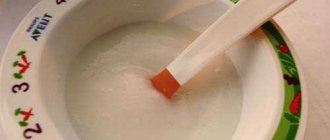As you know, juice should be introduced from a single component, then gradually and carefully expanding the diet. Of course, a mixture of juices is healthier for the body, but children are likely to have an allergic reaction, so one type of juice is introduced first. To introduce juices into the diet, it is better to wait until the baby is already eating purees - when his body is able to cope with plant fibers.
But even when juice is included in the baby’s menu, we must not forget that it should not be given in unlimited quantities. Excessive consumption of juice increases the load on the kidneys, and even a baby may develop edema.
What are the benefits of juice?
Every day, little researchers study the world around them with curiosity; the child’s body is constantly in need of restoration. What product will come to the rescue? Baby juice can quickly replenish the energy reserves a toddler needs for growth due to the natural sugars (“fast carbohydrates”) contained in juices. The juice also contains organic acids and polyphenolic compounds, and juices with pulp also contain natural dietary fiber, which stimulate intestinal function so that the baby’s tummy feels comfortable.
Juices help introduce a baby to new tastes and aromas, form correct food preferences from a very early age, help improve appetite, and enrich the child’s diet with important substances. And most importantly, fruit juices are “filled with sunshine” and give children joy, because they have an unusual taste and bright color.
Beneficial features
- Enriched with vitamin C, hence it helps improve immunity.
- A sufficiently high iron content affects the increase in hemoglobin levels in the blood.
- There are B vitamins that have a beneficial effect on the nervous system.
- This juice has antioxidant properties that promote the rapid removal of toxins and metabolic products from the blood.
- The organic acids contained in the apple improve the digestion process and also have choleretic and diuretic properties.
- Increases appetite, stimulates enzymatic activity.
- Proper use is a good prevention of constipation.
- Magnesium, potassium, phosphorus, calcium, sodium and about 10 other minerals also contained in this fruit have a beneficial effect on the growing body.
A drink made from green apples is considered hypoallergenic.
When to introduce juices into complementary foods
When and what juices can you give your child? At what age can juice be introduced into his daily diet? And what do you need to know about industrially produced baby juices?
After the baby has become familiar with vegetable and fruit purees and baby cereals, that is, the first complementary foods have already been introduced, at the age of 4-6 months pediatricians recommend introducing him to fruit juices in the following amounts:
- for babies older than 4-6 months - from 5 to 60 ml of juice,
- over 7 months - from 70 ml of juice,
- over 8 months - from 80 ml,
- at 9-12 months - 90-100 ml of juice per day.*
Juices should be given during or after feeding the baby. On the first day of introducing juices, carefully monitor your baby’s reaction: whether he liked the new taste, whether a rash, bloating or intestinal upset appeared. If side effects occur, postpone introducing the juice to a later date; there is no need to rush in this matter.
Rules for creating a diet for a nursing mother at 4 months
The diet of a nursing mother at 4 months after the birth of a child has its own nuances:
- It is better to stew cabbage to prevent the formation of gases in the baby;
- It is better to cook meat and fish by steaming, baking or boiling;
- consume more dairy products than in previous months to provide your baby with calcium;
- For vegetables and fruits, preference is given to local and seasonal ones; exotic and imported ones are best excluded;
- eat meat at least 4 times a week;
- cook with eggs at least three times a week;
- do not abuse sweets, the child may develop diathesis;
- eat 5-6 times a day, about half an hour before putting the baby to the breast;
- introduce herbal teas with caution, once a week, observing the child’s reaction;
- introduce new foods once every three days and watch the baby’s reaction;
- doctors recommend keeping records of all foods and how the child’s body reacted;
- be sure to drink at least 3 liters of liquid, preferably warm - there will be more milk;
- Start consuming honey with half a teaspoon.
At 4-5 months, the baby’s incidence of colic decreases, but a nursing mother’s diet should not yet include fermentable foods. Other foods that can cause colic are introduced gradually; if bloating appears, they are excluded from the menu for a couple of weeks.
Foods that provoke colic and flatulence in a child:
- whole cow's milk;
- cabbage;
- bell pepper;
- cucumbers;
- pears;
- grape;
- raisin.
To ensure stable lactation, a nursing mother should get enough rest and take walks every day. It will be useful to engage in light physical activity and do exercises.
Daily walks in nature will improve your mood better than chocolate
pumpkin juice
Pumpkin is a storehouse of vitamins and beneficial micro- and macroelements; pumpkin juice contains active substances that stimulate the functioning of various organs and systems. It rarely causes allergies in adults and children, and therefore nursing mothers can drink this juice regularly.
Pumpkin juice has a beneficial effect on digestion, improves peristalsis, which will help fight atonic constipation. But if you have gastritis or pancreatitis, the use of this product, which irritates the gastric mucosa, should be limited.
Pumpkin juice is especially beneficial for a baby, since most of the vitamins and minerals that help strengthen the immune system pass into breast milk.
A freshly squeezed pumpkin drink will help strengthen the cardiovascular system and cleanse blood vessels. This product helps restore a woman’s body after childbirth. But hypotensive patients are allowed to drink this juice only in small quantities.
Pumpkin juice is introduced into the diet, starting with a small amount.
It is recommended to drink about a glass of this drink per day. Subscribe to our VKontakte group
What is the difference between baby juice and regular juice?
Quality of raw materials. The raw materials used to prepare baby juices must be of high quality. Children's juices are made only from environmentally friendly raw materials, which are grown in specially designated environmentally friendly areas.
There are no food additives that can harm the child’s body: dyes, preservatives, flavors, starch.
Products are adapted to specific ages. The gastrointestinal tract of a child under three years of age is not yet fully formed. When making children's juices, this is taken into account and the children's product is adapted to the baby's needs. Typically, products labeled “children” indicate the age at which the product is recommended for use.
Heat treatment. Children's juices undergo heat treatment, which destroys all microorganisms, making the product safe.
Of course, “adult” juices also undergo quality control and are produced taking into account new technologies in the food industry, but the requirements, which are much milder and are designed for the fact that the product will be consumed by a person whose gastrointestinal tract is fully formed and ready for digestion of various foods.
Juice as medicine
Knowing the effects of different juices on the body, you can use them as natural medicines.
Everyone knows that drinking juices is good after a cold and almost any serious illness. They also act as diuretics, which is important for diseases of the urinary system. The composition of each juice is different, therefore their effect on the body is different.
Pineapple juice
Known as a fat burner. It should be drunk for diseases of the kidneys, pancreas, intestines, as well as thrombosis, edema, and sore throat.
Orange juice
Being a storehouse of vitamin C, it has a positive effect on the immune system and can also act as a preventative against colds. In addition, it lowers blood pressure, improves digestion and metabolism, burns fat and even has an anti-carcinogenic effect. People with diseases of the gastrointestinal tract are recommended to dilute orange juice with water.
Watermelon juice
Like watermelon itself, its juice has a diuretic effect. But due to the very high level of nitrates in watermelons, it is still not advisable to prepare juice from them.
Grape juice
Can also be used as a diuretic and weight loss aid. It is useful for diseases of the heart, liver and lungs. But due to the sweetness of grape juice, it is not advisable for people with diabetes to drink it.
Pomegranate juice
First of all, it is useful for blood loss and low hemoglobin. But it should be used with caution by people prone to constipation.
Important!
It is not advisable to give pomegranate juice to a child under two years of age, as it contains a lot of acid.
Grapefruit juice
Strengthens the nervous system, improves brain activity, reduces blood pressure, and promotes rapid recovery from illness.
Grapefruit juice is beneficial for pregnant women and physically active people.
Pear juice
Has a diuretic and fixative effect. It also has a positive effect on the functioning of the nervous system.
Lemon juice
Lemons have been used since ancient times to prevent rickets. It is also useful for bone diseases.
Mango juice
Treats the oral cavity, improves digestion, is used as a remedy for heartburn, strengthens the heart, and helps to cope with stress more easily.
Tangerine juice
Wonderfully refreshing. It has a healing effect on the skin and improves metabolism.
Peach juice
Helps the body fight unfavorable environmental conditions. It also strengthens the heart and improves the functioning of the digestive system.
Apple juice
Useful for all systems and organs. Especially for the heart, lungs, kidneys and bladder. It also improves appetite.
Sea buckthorn juice
It is useful to drink in the spring, for hypovitaminosis. It is also used for diseases of the bones and digestive system.
Cabbage juice
Warmed cabbage juice treats the gastrointestinal tract, throat and oral cavity. Like many vegetable juices, it burns fat.
carrot juice
It has a positive effect on many systems: digestive, nervous, urinary. It also helps heal wounds, skin diseases and generally improves the health of the skin and hair. Everyone knows the ability of carrots, as well as its juice, to improve vision. It also helps with diseases of the heart and thyroid gland. Carrot juice improves immunity and removes cholesterol. In general, it has a tonic effect on the entire body.
Beet juice
Cleanses and restores blood. It may not taste very pleasant, in which case it can be mixed with carrot juice.
Tomato juice
Overweight people can drink it without any worries, as this juice is low in calories. It also has a diuretic and choleretic effect, and acts as an antimicrobial and anti-inflammatory agent. Tomato juice also helps with constipation, joint diseases and high blood pressure. Strictly contraindicated for even the mildest poisoning.
Celery juice
This juice improves metabolism, therefore it is recommended for diabetes and excess weight and cleanses the body of toxins. The diuretic effect makes celery juice useful for kidney diseases. Containing a lot of fiber, this juice helps relieve constipation. The calming effect allows you to prescribe celery juice even for nervous disorders. In addition, it refreshes and tones.
How juice can harm
Despite its liquid structure, juice is a rather heavy product. It is rich in sugars, mineral salts, acids, and at the same time, the juice does not contain fiber, which would help absorb all the nutrients. Doctors see this as the reason that in some cases, drinking juice leads to unpleasant consequences and even serious illnesses.
Once in the body, the juice forces the pancreas and kidneys to work harder. It is especially difficult for the organs of children if juice is introduced into their diet too early - when the digestive and excretory systems have not yet learned to cope with unadapted food. And at some point the stomach, pancreas, intestines or kidneys will “break”, and the child will suddenly develop dysbacteriosis, gastritis, pancreatitis, etc., which are common in modern children and adolescents.
Abuse of certain juices, primarily orange juice, sharply increases the risk of developing diabetes. Even one glass of any sweet juice daily increases this likelihood by 18%. True, some studies clarify that this applies only to cheap juices containing sugar taken on an empty stomach. In any case, regular consumption of fresh fruit, on the contrary, reduces the likelihood of diabetes.
Any sugary drinks, which even includes natural juice without sugar, lead to obesity in children. Moreover, it is children who are already overweight who are at greater risk. This is due to the fact that carbohydrates from juice are easily digested, without giving a feeling of fullness.
Regular intake of juices may result in them replacing foods necessary for a child's growth, such as dairy products. For this reason, children who drink a lot of juice every day are not only fatter, but also shorter.
Fact
Typically, allergies occur to the following juices: red apple, citrus, strawberry, pineapple, raspberry, multifruit.
Many parents are aware of the ability of juice to cause allergies. It often even happens that a fresh fruit or berry is tolerated by a child, and the juice from it becomes a strong allergen.
For this reason, it is not advisable to give juice from various fruits to children prone to allergies.
In general, excess fluid in the body puts strain on the kidneys and heart. This can cause swelling, weakness and poor health.
People with certain diseases should drink juices with caution:
- for ulcers and gastritis, sour juices are contraindicated;
- If you have intestinal diseases, you should not drink grape juice, as it increases flatulence, causes diarrhea and colic.
- If you are hyperactive, it is advisable to drink only freshly squeezed juices from organic products.
Parents of babies should remember that the acid contained in the juice corrodes tooth enamel, so juice should never be given from a bottle, much less kept in the mouth for several hours.
In addition, the World Health Organization (WHO) does not recommend supplementing a breastfed baby until 6 months of age, as this will reduce the number of latches and thus reduce milk supply.









